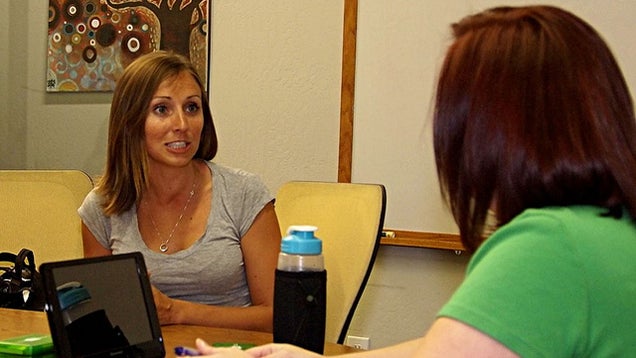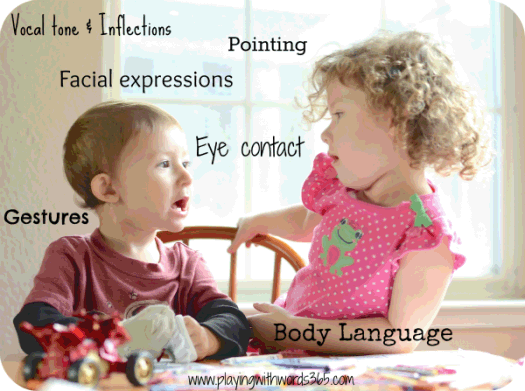Many people want to be better speakers, but you’ll seldom hear of someone who wants to be the best “listener”. It’s natural to want to be heard, but it is actually more important to first hear about what others have to say. It’s important to express, to get your point across, and to make others understand or sometimes, believe what you have to tell them. But in many cases, what they need to express, the point that they need to get across, or the need for you to understand and believe them might be more important, and you don’t know it because you didn’t listen well. Effective listening takes a lot of effort, but it is key in building solid communication and better relationships whether at home, at work, or in any other setting. It is one of the secret of great leaders, who are able to motivate and inspire others, and get them to do their job, while still maintaining respect. While good listening skills might not be innate in others, but these can definitely be acquired and developed. You can’t expect to gain them after some practice or trying, but you can definitely start now. Here are some tips on how to promote and enhance good listening skills.
10. Read about other people

Photo Source: www.youtube.com
Our topic might be about listening, but you’ll be surprised at how reading about others can actually improve how you listen. Reading about others lessens self-centeredness- it makes you become more aware and interested about anything or anyone other than you and your life. Remember how you were inspired by discussions about your national heroes when you were in elementary or high school? Learning about others improves your empathy towards others. The more you learn about other people, the more likely you’ll be interested to listen to what others have to say.
9. Show interest by asking questions

Photo Source: lifehacker.com
Many conversations go downhill because of the lack of follow-up questions. If you don’t ask further, or dig deeper into the topic, you show hints that you’re not interested. On the other hand, asking follow-up questions would expand the topic and help you find out more about another person. Ask open-ended questions though- those that are not answerable by only one-word responses like yes or no. Ask for details, descriptions, and impressions. Be the one to keep the ball rolling.
8. Maintain eye contact

Photo Source: www.artofmanliness.com
Nothing shows another person that you’re uninterested than by not maintaining eye contact. Looking another person in the eye while conversing is one of the best ways to show sincerity. It shows that you geniunely want to listen and to find out more about what they have to say. It shows that you are not upset about anything, or that your mind is not wandering off, or that you’re not hiding anything. It helps you to focus on the subject matter or the person, and be all about them and what they have to say for a few moments.
7. Be aware of non-verbal cues

Photo Source: www.pauwelsconsulting.com
Much of what other people have to say are said through non-verbal communication or what some call “body language”. Observe facial expressions, how people sit, how they walk, how they talk, how they move their arms and hands. Look and listen beyond the words they speak, and you’ll be surprised what more you can learn about others.
6. Communicate through non-verbal cues

Photo Source: www.askshiva.com
Just as you can “read people’s minds” through their movements, they can read yours through your gestures too. If you’re sitting down and listening, lean forward and don’t fidget or do anything with your hands or feet. Moving too much hints that you want to do something else than listen to the person. If you’re both standing, you can place your hands over the other person’s shoulder to show genuine interest in what he or she is saying.
5. Ask for clarification

Photo Source: decode-medicine.blogspot.com
Ask questions like “If I understand correctly you mean…”, or “So what you’re trying to say is…. is that it?” These are magic questions that can clarify any misconception or miscommunication between you and the speaker. It’s not hard to do, but helps a lot, and can save lives (well that might be an exaggeration, but who knows?)
4. Don’t interrupt

Photo Source: dulye.com
Never cut in on somebody talking unless what you have to say is very, very urgent. Let them finish a complete thought before giving your comment. Your response might be changed or modified based on what they have to say next. Develop the habit of waiting for your turn in a conversation. If you do this, people will like you more, and will actually become more interested in what you have to say as well.
3. Keep your focus on the subject

Photo Source: kezanari.com
Avoid thinking about anything else and focus on the topic and the one speaking as you listen. Make sure that you get all the important details, and that you get them right. The worst enemy of missing information is misinformation. Try to avoid thinking about what to do next, or what to do the entire day, and focus on the now, and give 100% attention to the speaker.
2. Avoid skepticism

Photo Source: viktorilieff.com
Remove the blocks of skepticism from your mind, and try to be open to everything and everyone. Pre-conceptions and first impressions can deprive you of making new friends, gaining precious knowledge, and other wonderful opportunities. Try to be a “clean slate” as another person is talking, and avoid all skepticism and cynism of any kind.
1. Empathize

Photo Source: antoinemccoy.com
The best way to improve listening skills is to develop empathy for other people. Placing yourself in their shoes will make you want to listen more- to find out more about what they’re going through, what they think, and how they feel. When they know that they matter to you, they’ll be more open and will want to share more. The best speakers are also the best listeners, because they perfectly know how it is to be on the listener’s end.
